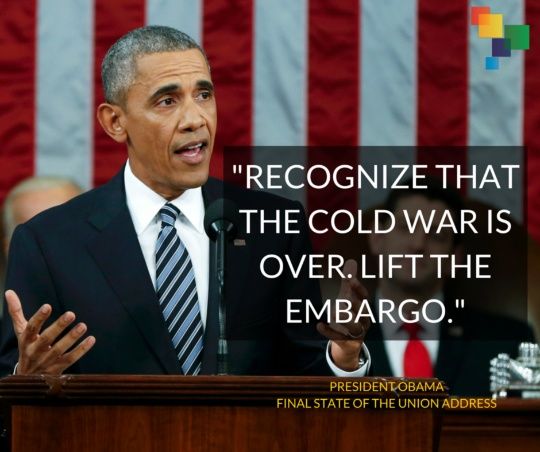The United States eased sanctions on Cuba related to exports and air travel Tuesday in the latest wave of changes in the ongoing reorganization of U.S.-Cuba relations after the thaw in bilateral ties over one year ago.
The changes will open up authorized air travel between the U.S. to Cuba and eliminate restrictions on financing for most Cuban exports, allowing U.S. banks to back exports. The new measures will take effect Wednesday.
The new rules also open the door for U.S. companies to shoot films and television programs in Cuba.
Treasury and Commerce announce further amendments to the Cuba sanctions regulations. pic.twitter.com/lSE4FQ23KL
— Treasury Department (@USTreasury)
January 26, 2016
U.S. Treasury Secretary Jack Lew applauded the amendments in the statement Tuesday, saying the changes “build on successive actions over the last year” and demonstrate that “the United States is committed to empowering and enabling economic advancements for the Cuban people.”
U.S. Secretary of Commerce Penny Pritzker said in a statement that the regulatory changes are “another step toward building a more open and mutually beneficial relationship” between the U.S. and Cuba.
IN DEPTH: U.S. Blockade on Cuba
While the thaw in U.S.-Cuba relations since the normalization of bilateral ties at the end of 2014 has been historic, talks are ongoing and diplomatic challenges still remain.
Cuba has repeatedly insisted that the U.S. end the economic blockade against the island, saying that there cannot be full normal relations between the two countries until the blockade is lifted.
Cuba’s Foreign Ministry has called the “rigorously applied” blockade the “main obstacle” to Cuba’s economic development and a violation of international law.
Cuba lost out on US$117 billion between 1960 and 2014 due to the U.S. economic blockade, according to the United Nations’ Economic Commission for Latin America and the Caribbean.

President Barack Obama has also said that the U.S. blockade on Cuba should gradually be lifted. In his final State of the Union address earlier this month, Obama called on Congress to “recognize the Cold War is over” and lift the blockade on Cuba.
The U.S. removed Cuba from its list of state of sponsors of terrorism in May, paving the way for Cuba to reopen its embassy in Washington on July 20 and the U.S. to reopen its embassy in Havana on Aug. 14 after 54 years.
The latest amendments to ease restrictions are the third such changes to be made in the name of normalizing ties between the two countries.
IN DEPTH: Cuba-US Relations Continue to Evolve, Slowly
Aside from calling for an end to the blockade, Cuba has also insisted that the U.S. return the U.S. naval-occupied territory of Guantanamo and respect Cuban sovereignty by halting all funding of anti-government groups.
The year 2015 was a landmark in the history of U.S.-Cuba relations as the two countries established foreign embassies and continued to normalize ties after decades of frozen relations.
WATCH: U.S.-Cuba Relations Develop